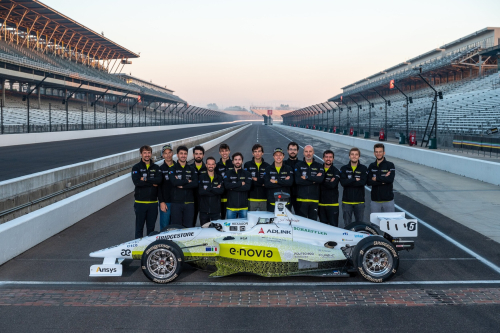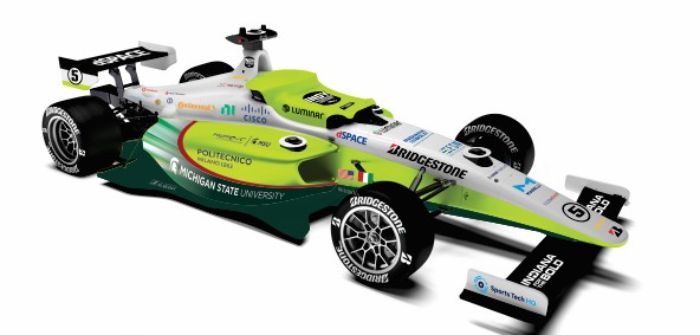Michigan State University (MSU), Politecnico di Milano in Italy and the University of Alabama have entered a two-year partnership to participate in the Indy Autonomous Challenge (IAC).
The first and only team from Michigan in the IAC series, MSU Mobility was involved in the initial discussions in 20109 that led to the formation of the self-driving race car challenge. The IAC tasks university students with developing and testing advanced automated vehicle software, including advanced driver assistance systems (ADAS), for fully autonomous race cars. During series races, autonomous cars operate at speeds of up to 200mph. The IAC series has grown to comprise international racing events.
Politecnico di Milano joined the IAC under the team name PoliMOVE and has won four of the five IAC annual racing series. The team has now become PoliMOVE-MSU to reflect the collaboration with Michigan State. The next race is scheduled for June 30 next year in Monza, Italy, with the unveiling of the new AV-24 PoliMOVE-MSU car set for January 11 at the Consumer Technology Association’s annual CES convention in Las Vegas, Nevada.
“Participating in the Indy Autonomous Challenge is a remarkable way for MSU Mobility to remain on the cutting edge of ADAS and sensor technologies, bringing new innovations to life in one of the most extreme scenarios a vehicle could be asked to perform under,” said Judd Herzer, MSU mobility director.
“It also gives us another impactful way to collaborate with automotive and tech companies and create opportunities and connections for our engineering talent and software developers.”
 The PoliMOVE-MSU team will race a Dallara-built AV-24 (the IAC official vehicle) that has been retrofitted for automation, with AI drivers programmed by team members. The team will be led by Sergio Savaresi, professor of automated control at Politecnico di Milano, with support from Daniel Morris, associate professor of biosystems and agricultural engineering and electrical and computer engineering, at MSU. Both universities will have student researchers contributing.
The PoliMOVE-MSU team will race a Dallara-built AV-24 (the IAC official vehicle) that has been retrofitted for automation, with AI drivers programmed by team members. The team will be led by Sergio Savaresi, professor of automated control at Politecnico di Milano, with support from Daniel Morris, associate professor of biosystems and agricultural engineering and electrical and computer engineering, at MSU. Both universities will have student researchers contributing.
“We have had a successful run in the Indy Autonomous Challenge to this point and look forward to developing a true partnership with Michigan State University in the upcoming year,” said Savaresi. “Their support, exceptional engineering program and impressive research in autonomous sensors and ADAS will be an asset to our team.”
The team aims to innovate sensor and software developments for increased safety and performance in motorsports and commercial transportation, with a focus on solving edge case scenarios, which occur only in extreme operating environments.
Satish Udpa, university distinguished professor of electrical and computer engineering at MSU, said, “This is the future of racing and helps put the future of mobility technologies on an expansive, thrilling international stage, highlighting how exciting STEM is and, hopefully, attracting future generations to work in the mobility sector.”



